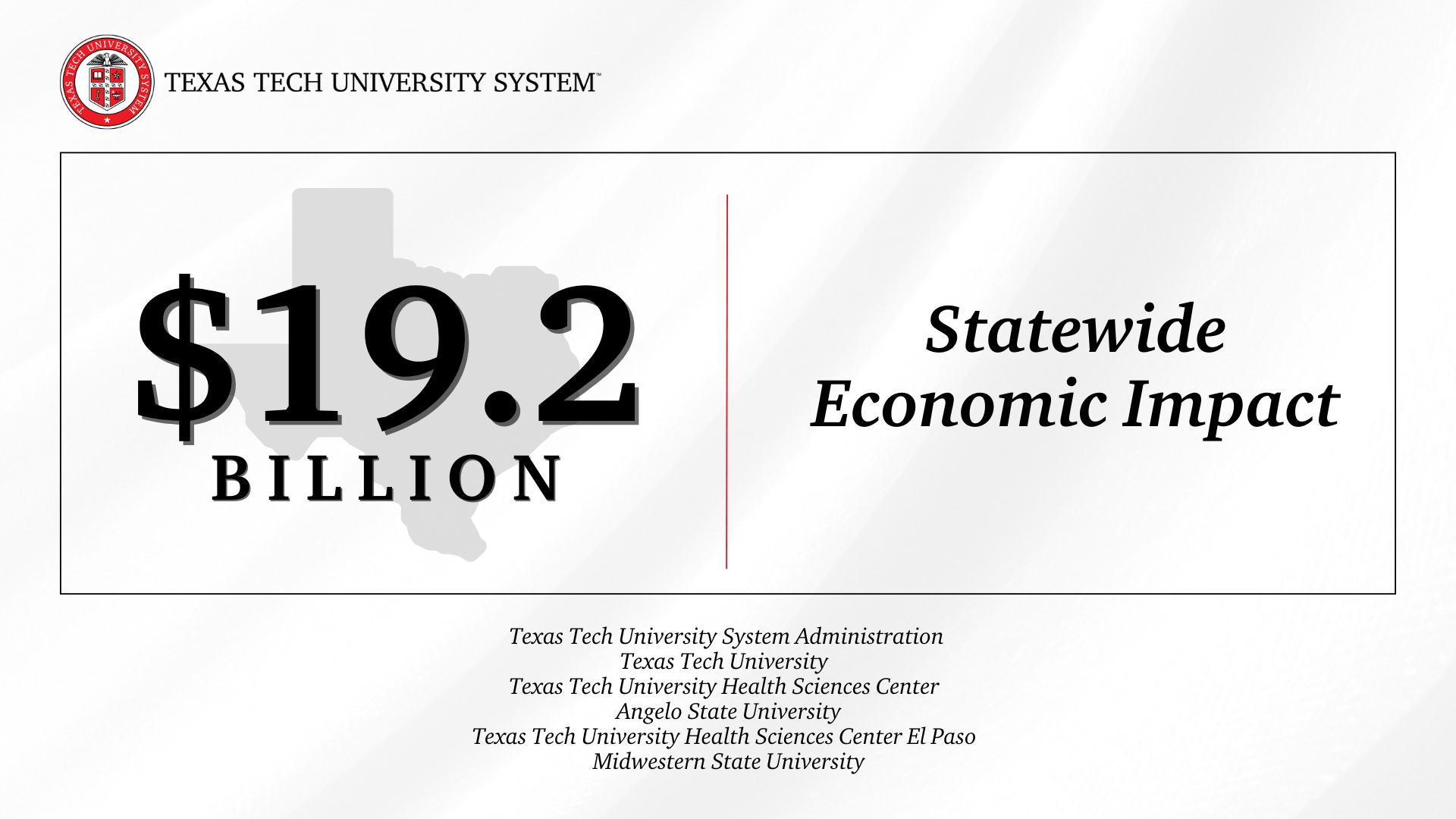Texas Tech University System Generates $19.2 Billion Economic Impact in Texas

The Texas Tech University System (TTU System) contributed a combined economic impact of $19.2 billion to the state of Texas in 2024. This marks a $2.8 billion increase since 2021, according to a study analyzing the economic influence of the system’s central administration and its component universities: Texas Tech University (TTU), Texas Tech University Health Sciences Center, Angelo State University, Texas Tech University Health Sciences Center El Paso and Midwestern State University.
The study highlights the system’s economic impact in four key areas: annual workforce contributions by alums, employment, labor income and overall output. The report also found that the state’s economy received a return of nearly $21 for every dollar the Texas Legislature invested in the TTU System.
“This data highlights the important role our system and five component universities play in the economies of our state and the communities we serve,” said Tedd L. Mitchell, M.D., chancellor of the TTU System. “It is a testament to our continued commitment to developing workforce-ready graduates, conducting innovative research and providing critical health care, services and resources to those who need it most.”
In 2024, graduates from all TTU System institutions contributed $10.3 billion to the Texas workforce, reflecting a more than $1 billion increase from 2021. The system’s total employment impact on the state reached 57,000 jobs, an increase of more than 10,000 jobs over the past three years.
This economic influence is further strengthened by the TTU System’s standing as one of the leading university systems in Texas and one of only nine in the nation offering a broad range of academic programs, including undergraduate, medical, law, nursing, pharmacy, dental and veterinary education. For the 2024-25 academic year, systemwide enrollment surpassed 64,000 students, and total research expenditures exceeded $300 million, both for the first time in the system’s history.
Commissioned by the Office of the Chancellor, the study was conducted by Bradley T. Ewing, Ph.D., the C.T. McLaughlin Chair of Free Enterprise in the TTU Jerry S. Rawls College of Business. Ewing utilized an input-output model to assess both regional and statewide economic impact.
The model analyzes factors such as annual operating budgets, research expenditures and student enrollment to estimate the system’s economic contributions at the state, regional and local levels. The report also includes estimates of system, employee, visitor and student spending.
About the Texas Tech University System
Established in 1996, the Texas Tech University System is one of the top public university
systems in the nation, consisting of five universities – Texas Tech University, Texas Tech University Health Sciences Center, Angelo State University, Texas Tech University Health Sciences Center El Paso and Midwestern State University.
Headquartered in Lubbock, Texas, the TTU System is a more than $3 billion enterprise focused on advancing higher education, health care, research and outreach with approximately 21,000 employees and 64,000 students, more than 400,000 alums, and an endowment valued at $3 billion. In its short history, the TTU System has grown tremendously and is nationally acclaimed, operating at 21 academic locations in 17 cities (15 in Texas, 2 international).
In addition, the TTU System is one of only nine in the nation to offer programs for undergraduate, medical, law, nursing, pharmacy, dental and veterinary education, among other academic areas.

